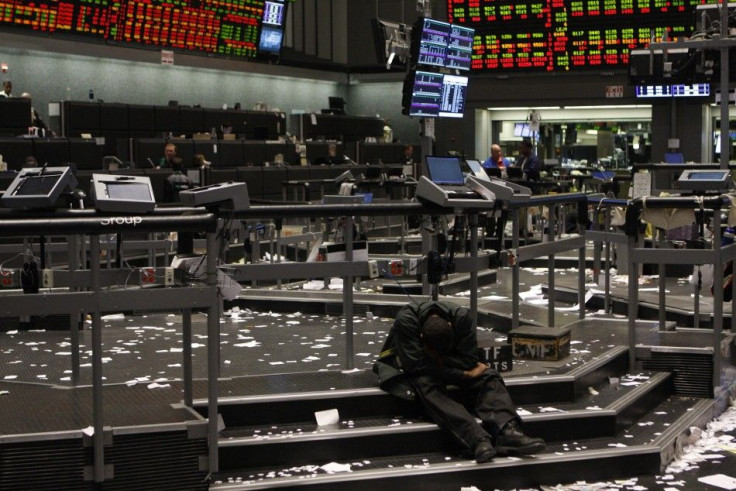Pigs and PIIIGS Biggest Losers in Global Selloff: Daily Markets Wrap

Global markets saw a shallow but broad selloff across the board Wednesday, as unsettling news from Spain combined with a histrionic report by the International Monetary Fund to give investors pause regarding the situation in Europe.
Underwhelming first-quarter earnings added to the depressed mood, as investors are slowly realizing the trend seen in previous quarters -- with corporate earnings handily beating consensus estimates for most large-cap companies -- is not assured to repeat itself.
At the center of the global asset whirlpool: Spanish banks. Shares in Iberian financial institutions led stock exchange indices in that country down, with effects rippling through other European and American equity markets and, to a lesser extent, the global fixed-income trade. The selloff, precipitated by investors nervous about the Spanish government debt auction coming Thursday, was further stoked by news that Spanish financiers were facing the highest level of bad loans on record. A report by the International Monetary Fund suggesting European banks might have to deleverage more than $3.8 trillion in assets during a worst-case scenario -- a gargantuan fire sale that would decimate the world's wealth -- did not improve matters any.
Here's a look at how the markets fared:
Stocks. Asian markets rallied to catch up with gains seen in the United States and Europe a day earlier. European markets tanked, with the Spanish IBEX-35 Index once again leading the downdraft. That index fell an astonishing 3.99 percent, and is now within a negative session's reach of exceeding the lows seen during the 2008-2009 global financial crisis. U.S. indexes saw a moderate, but broad selloff. The benchmark S&P 500 Index of U.S. equities closed at 1385.14, down 0.41 percent.
Bonds. The Treasury yield curve bull-flattened as yields went down on longer-term securities while those on short-term notes remained largely unchanged. There was especially strong movement for 30-year bonds. The benchmark 10-year note rose in price, falling in yield to 1.987 percent. German bunds rallied. Italian and Spanish debt, which had seen yields drop early in the day, surrendered most of those gains later in the trading session.
Currencies. The dollar was somewhat higher and most other currencies were static, leading the greenback to outperform other countries' monies on a narrow gain. The U.S. dollar Index was up 0.04 percent for the day. Among major currencies, only the Swedish krona and the British pound sterling fared better. The rise of the pound was ironic in a day after the country's deputy prime minister predicted the United Kingdom would eventually join the common currency as the country's reigning skepticism of economic integration had failed at every turn.
Commodities. Commodities fell across the board, sharply in several cases, a counterintuitive development on a day when the dollar was only marginally higher and there were no major monetary policy pronouncements. Gold and silver, as well as industrial metals, declined somewhat. Energy futures saw stronger selling pressure, with a barrel of light, sweet crude for delivery on the New York Mercantile Exchange dropping $1.52 to $103.12. Agricultural commodities were the hardest hit; in spite of the fact it's currently pig fattening season, lean hogs future contracts shed a surprising amount of weight, and were down $2.425, or 2.7 percent, to settle at $87.40 per contract.
© Copyright IBTimes 2025. All rights reserved.





















